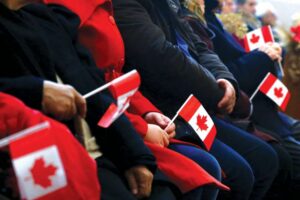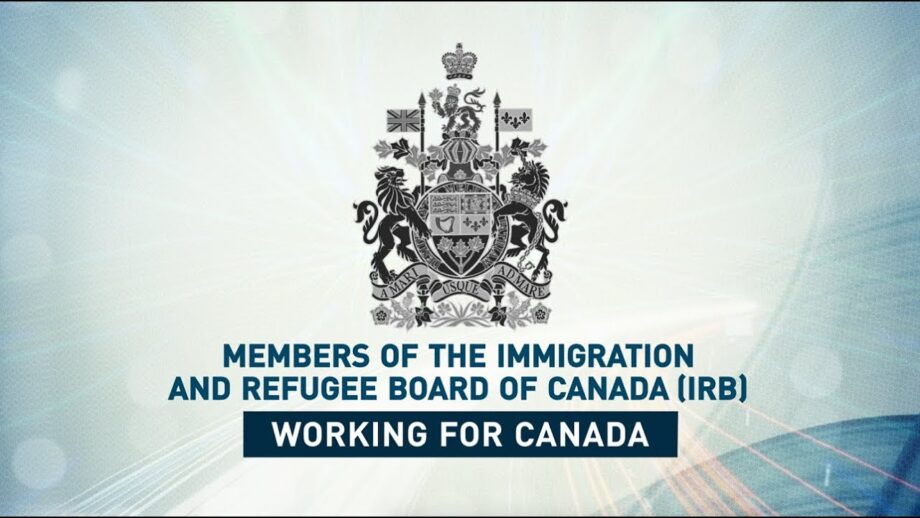The Immigration and Refugee Board of Canada

The Immigration and Refugee Board of Canada: A Comprehensive Overview
The Immigration and Refugee Board of Canada (IRB) plays a pivotal role in Canada's immigration and refugee determination process. Established in 1989, the IRB is an independent administrative tribunal responsible for making decisions on immigration and refugee matters in accordance with Canadian law and international conventions. In this comprehensive article, we will delve into the structure, functions, and significance of the IRB in the Canadian immigration system, while also examining its role in upholding human rights and Canada's commitment to providing protection to refugees.
Introduction:The Immigration and Refugee Board of Canada
Canada is celebrated for its welcoming and inclusive immigration policies, as well as its commitment to providing refuge to those fleeing persecution, conflict, or hardship in their home countries. The IRB plays a critical role in upholding these values by ensuring a fair, efficient, and impartial adjudication process for immigration and refugee claims.
The Origins of the Immigration and Refugee Board of Canada
The IRB was established in 1989 under the Immigration Act, which has since been replaced by the Immigration and Refugee Protection Act (IRPA) in 2002. The creation of the IRB marked a significant shift in Canada's immigration and refugee determination process, moving away from a system where decisions were made by immigration officials to one where an independent tribunal would oversee these matters. This change was motivated by a desire for greater transparency, fairness, and adherence to international human rights obligations.

Structure of the Immigration and Refugee Board of Canada
1. The Chairperson
The IRB is led by a Chairperson who is responsible for overseeing its operations. The Chairperson is appointed by the Governor in Council and is responsible for the overall administration and management of the IRB.
2. Divisions
The IRB is divided into four main divisions, each with its specific responsibilities:
a. Refugee Protection Division (RPD)
The RPD is responsible for hearing refugee claims made by individuals seeking protection in Canada. The division assesses whether claimants meet the criteria for refugee status as defined under the United Nations Convention Relating to the Status of Refugees. It operates under a principle of independence and impartiality to ensure fair and just determinations.
b. Immigration Appeal Division (IAD)
The IAD provides individuals with a platform to appeal immigration-related decisions made by immigration authorities. This includes appeals related to sponsorships, residency obligations, and removal orders. The IAD aims to strike a balance between Canada's immigration policies and the interests of individuals and families affected by these decisions.
c. Immigration Division (ID)
The ID deals with various immigration-related matters, including detention reviews and admissibility hearings for individuals facing removal from Canada. It plays a crucial role in ensuring that the rights of individuals facing removal are respected and that the process is conducted fairly.
d. Refugee Appeal Division (RAD)
The RAD offers claimants the opportunity to appeal decisions made by the RPD if their claims are rejected. This provides an additional layer of scrutiny to ensure that genuine refugees are not returned to situations of persecution or danger.
3. Regional Offices
The IRB operates regional offices across Canada to facilitate the processing of claims and appeals. These offices are essential for conducting hearings, gathering evidence, and providing access to the tribunal's services for individuals across the country.

Functions of the Immigration and Refugee Board of Canada
The IRB carries out several critical functions within the Canadian immigration system:
1. Refugee Determination
The Refugee Protection Division (RPD) is perhaps the most well-known part of the IRB. Its primary function is to assess refugee claims made by individuals who fear persecution or serious harm in their home countries. The RPD evaluates whether claimants meet the criteria for refugee status, including a well-founded fear of persecution based on factors such as race, religion, nationality, political opinion, or membership in a particular social group.
2. Appeals
The Immigration Appeal Division (IAD) and Refugee Appeal Division (RAD) provide individuals with a forum to appeal decisions made by immigration authorities. This appeals process ensures that decisions are subject to review and that individuals have the opportunity to challenge adverse rulings, promoting transparency and fairness.
3. Detention Reviews
The Immigration Division (ID) conducts detention reviews for individuals who are detained by immigration authorities. These reviews are essential to safeguard the rights of detainees and determine the necessity of their continued detention.
4. Admissibility Hearings
The Immigration Division (ID) also conducts admissibility hearings for individuals facing removal from Canada. These hearings assess whether individuals meet the requirements for entry into or stay in Canada, including issues related to criminality or security concerns.
The Significance of the Immigration and Refugee Board of Canada
1. Upholding Human Rights
The IRB plays a pivotal role in upholding Canada's commitment to human rights. By carefully assessing refugee claims, providing a fair appeals process, and ensuring that individuals facing removal are treated justly, the IRB contributes to the protection of vulnerable individuals and the prevention of refoulement (the return of individuals to countries where they face persecution).
2. Supporting Canada's Immigration Goals
While Canada is known for its welcoming immigration policies, it must also manage immigration in a way that aligns with its national interests and priorities. The IRB strikes a balance between these objectives by providing a mechanism for reviewing immigration decisions and addressing concerns raised by individuals and families affected by those decisions.
3. Promoting Transparency and Accountability
The IRB operates as an independent tribunal, free from political interference. This independence ensures that decisions are made based on the law and evidence, rather than political considerations. It also promotes transparency and accountability in the immigration and refugee determination process.
Challenges and Controversies of The Immigration and Refugee Board of Canada
While the IRB plays a critical role in Canada's immigration system, it is not without its challenges and controversies. Some of the key issues facing the IRB include:
1. Backlog of Cases
The IRB has faced challenges related to the backlog of cases, particularly in the Refugee Protection Division. Lengthy processing times can be detrimental to claimants who are waiting for decisions on their refugee claims.
2. Resource Constraints
Resource constraints, including budget limitations and staffing issues, have at times affected the efficiency of the IRB. Adequate resources are crucial for ensuring timely hearings and decisions.
3. Consistency in Decision-Making
Ensuring consistency in decision-making across various divisions of the IRB has been an ongoing challenge. While the IRB strives for impartiality, variations in decisions have raised concerns about fairness and predictability.
4. Changing Political Landscape
The IRB operates independently, but shifts in political leadership and priorities can influence immigration policies and the broader context in which the IRB operates. Maintaining its independence in such situations is essential.

Conclusion : The Immigration and Refugee Board of Canada
The Immigration and Refugee Board of Canada stands as a testament to Canada's commitment to providing protection to refugees and ensuring fair and just immigration processes. With its independent tribunal structure, the IRB plays a pivotal role in upholding human rights, promoting transparency, and supporting Canada's immigration goals.
Despite its challenges and controversies, the IRB remains a cornerstone of the Canadian immigration and refugee determination system, working tirelessly to balance the needs of individuals seeking refuge with the interests of the nation. As Canada continues to welcome newcomers and offer protection to those in need, the IRB's role in safeguarding human rights and ensuring a fair and just immigration system remains indispensable.
In case, if you need Help and Immigration Law Professional, who will represent your the Interests in The Immigration and Refugee Board of Canada for next type of Applications: Refugee Application, Immigration Appeals, Detention review and Admissibility Hearings, please fill in Application below or contact us directly.

